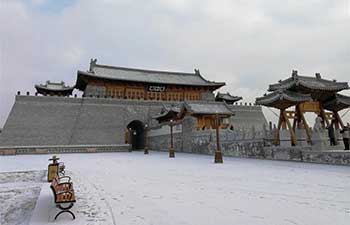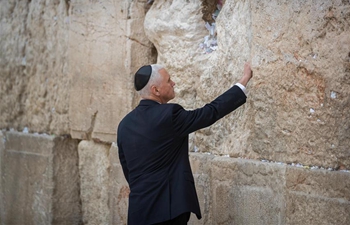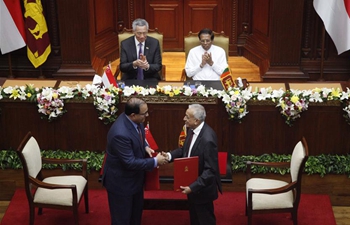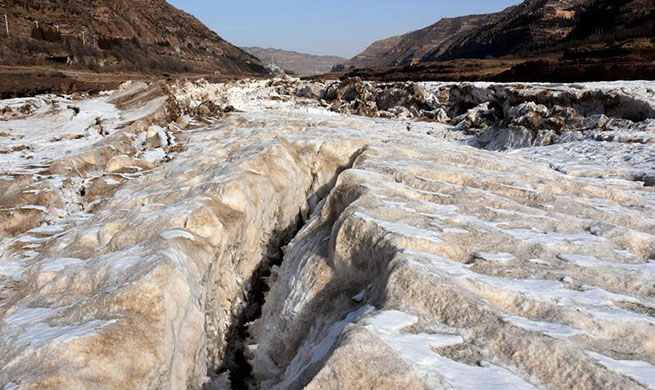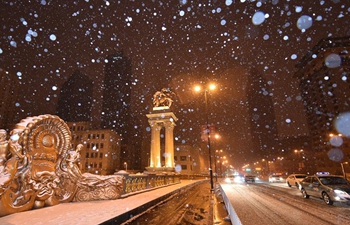WASHINGTON, Jan. 24 (Xinhua) -- U.S. Vice President Mike Pence's five-day visit to the Middle East ended Tuesday without results, dogged by President Donald Trump's controversial decision to recognize Jerusalem as Israel's capital, a move that triggered widespread protests.
Pence's trip to Egypt, Jordan and Israel, aiming to mend relations with allies and promoting peace talks between Israel and Palestine, turned out to be bumpy, especially at the first two stops, where leaders of the Arab world sharply criticized Trump's Jerusalem move.
JERUSALEM MOVE UNDER FIRE
Following his talks with Egyptian President Abdel Fattah al-Sisi on Saturday, Pence told the press that the Egyptian leader described his objection to Trump's decision as a "disagreement between friends."
However, the Egyptian presidency said in a statement that Sisi noted that negotiations based on a two-state solution alone could end the conflict.
The two-state solution envisions an independent Palestinian state with East Jerusalem as its capital alongside Israel.
In his meeting with Pence on Sunday, Jordan's King Abdullah II warned Washington about the risks of the Jerusalem declaration, urging the United States to reach out and rebuild trust to achieve the two-state solution.
Pence later told reporters that in his "very frank" discussion with King Abdullah II, "we agree to disagree on the decision by the United States to recognize Jerusalem as the capital of Israel."
Pence's visit, the first by a senior U.S. official to the Middle East following Trump's announcement in December, was initially scheduled in the same month. However, it postponed as protests erupted in the region.
The changed U.S. recognition of Israel's capital is a dramatic change in the status quo and people in the Middle East understood that, Brookings Institution senior fellow Darrell West said.
"Nothing the vice president can say will alter that belief. It will be harder for the United States to be seen as a fair arbiter there," West said.
Wayne White, a policy expert at the Middle East Institute and former State Department official, said the Jerusalem disagreement has struck at the heart of American-Arab relations.
DIM PROSPECT FOR PEACE TALKS
During his stay in Israel, the last leg of his trip and where he seemed most at ease, Pence announced that the United States will open its embassy in Jerusalem before the end of next year.
Although he said the decision to move the embassy was made in the best interests of peace, it was difficult to see how it could improve ties between Israel and Palestine.
It is hard to see a path forward to peace given the antagonisms in that region, West said. Most U.S. leaders are "playing to their bases and (are) not interested in the Middle East peace process," he added.
During Pence's speech in the Knesset, Israel's parliament, Monday, Arab-Israeli lawmakers were forcibly banished from the plenum as they raised flags calling Jerusalem the capital of Palestine.
"The Jerusalem declaration restated in Pence's intensely pro-Israeli speech without meaningful reference to Palestinian interests makes it near impossible for Israel and the Palestinians to reach consensus," White said.
Pence was originally scheduled to visit the West Bank or meet with Palestinian President Mahmoud Abbas but the latter canceled the meeting in protest over Trump's decision.
While the majority of Israelis view Jerusalem as their capital, the Palestinians want the eastern side of the city as the future capital of their state. International consensus sides with them, leaving the United States and Israel in a minority.




